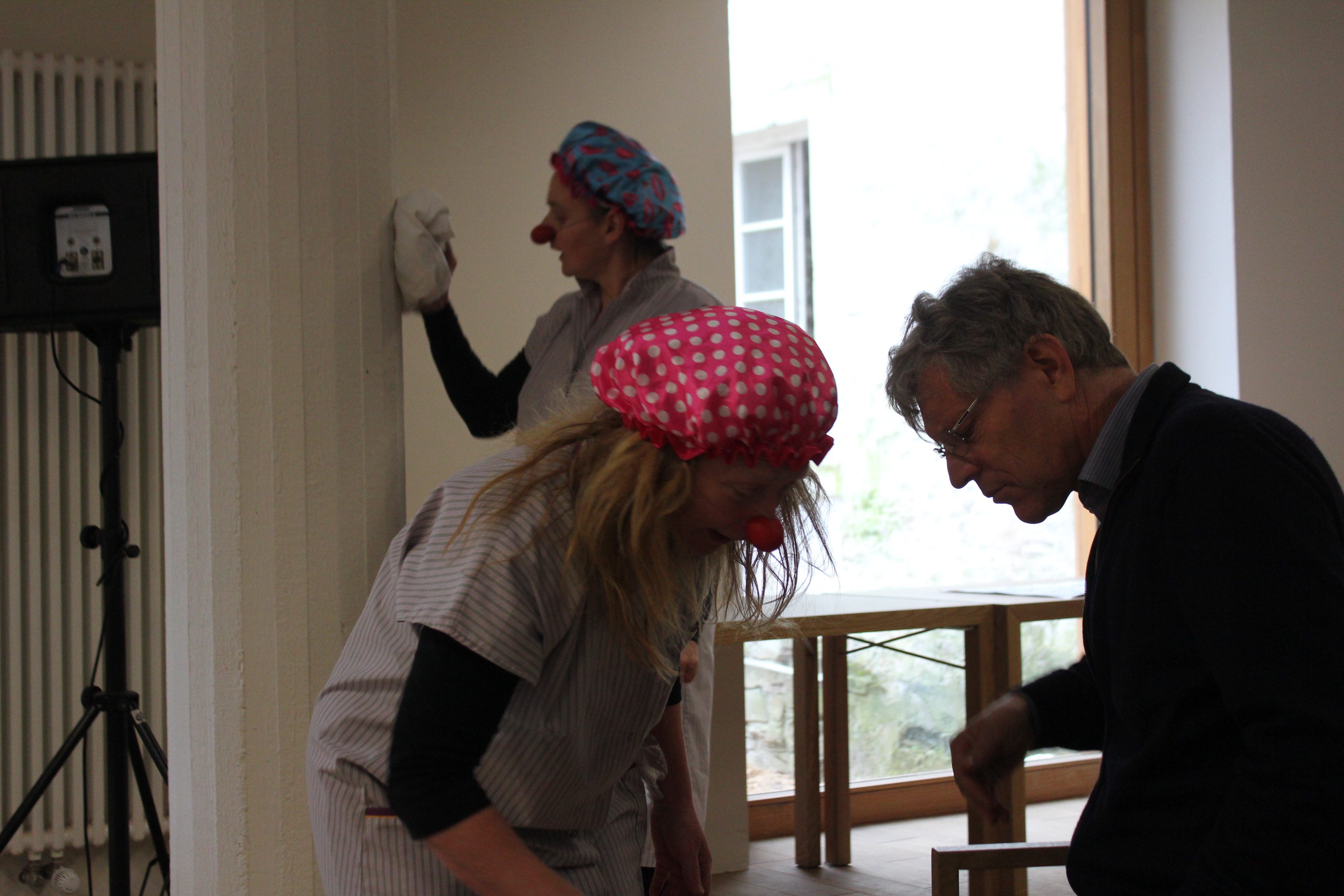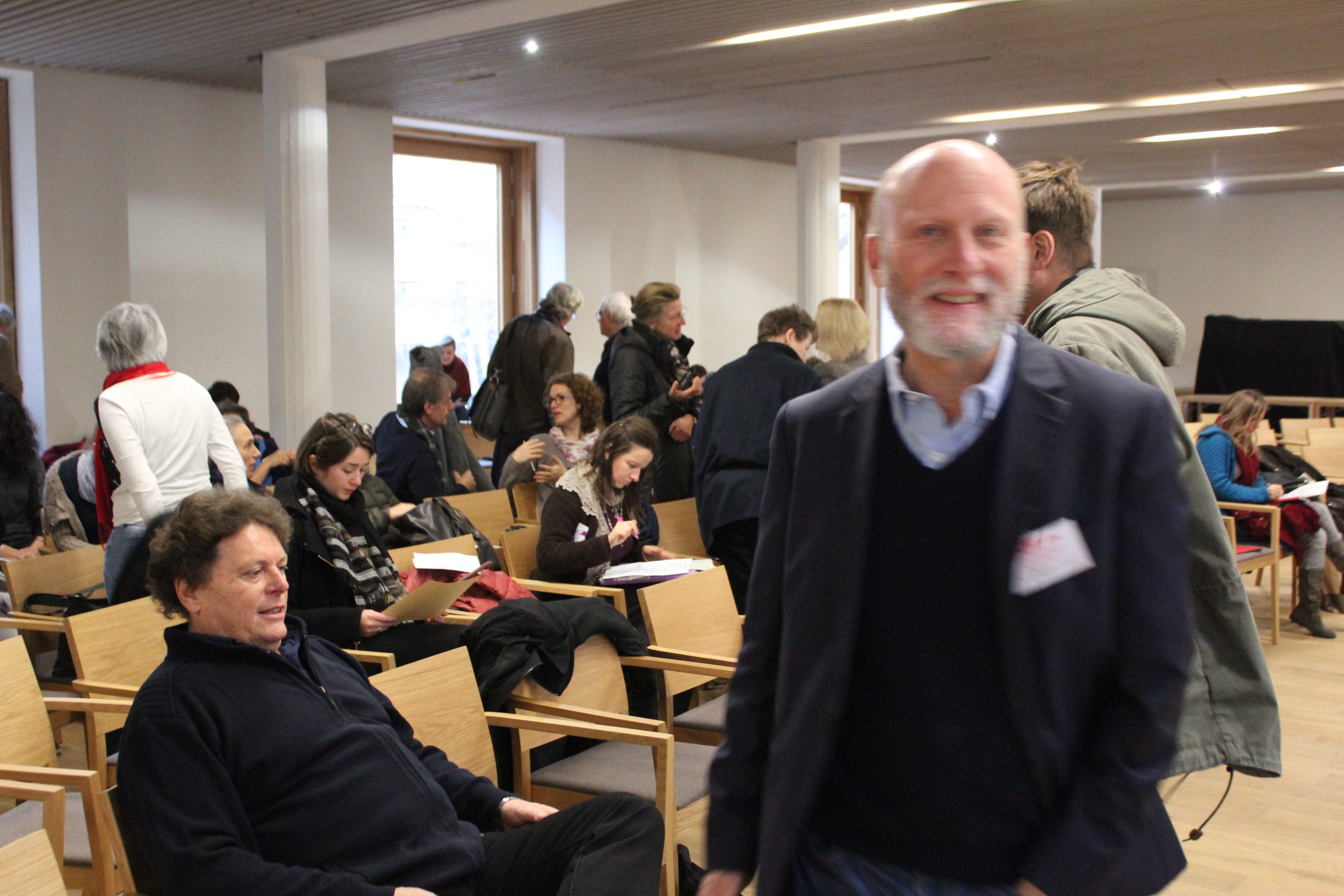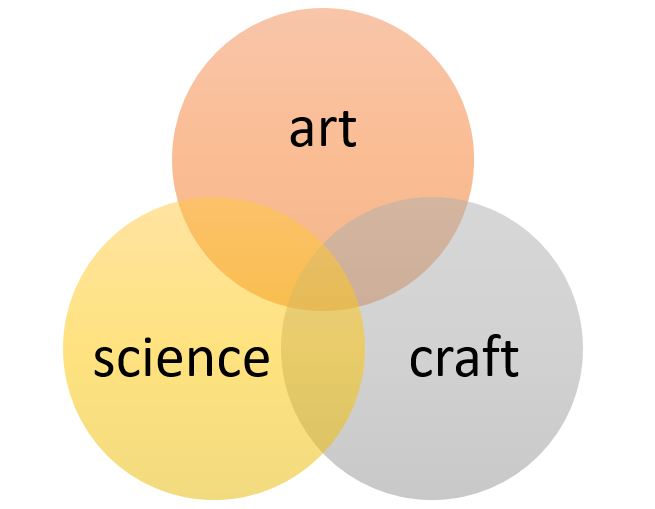It seems a while ago now but it was in fact only three weeks. However, it was the 20th anniversary and it was celebrated in style. For those who don’t know, English Week is a week of teacher development for teachers of English as a foreign language. This year there were teachers from 21 countries and the guest speakers were Florian Osswald, co-leader of the Pedagogical Section at the Goetheanum and Professor Alan Maley, one of the leading lights in the world of EFL. Our policy at EW has always been to engage with representatives of other, non-Waldorf approaches and Alan has been there a number of times to share his ideas on creative writing and working with poetry.

Work in progress
EW was a great success even if the venue was less than perfect – putting it mildly. Our traditional venue Haus Altenberg in the wooded hills of the Bergisches Land (admittedly not known for its Englishness but, since the UK is so expensive, we create a home from home for English speakers in this old monastery and cathedral.) Haus Altenberg has undergone a lengthy process of renovation and unfortunately this process was still going on around us. Personally I found the building site atmosphere conducive to work in progress regarding my definitive account of teaching English as a foreign language. Having said that, I didn’t have to sleep in an unfinished room with a dodgy key (a number of people locked themselves out in the middle of the night on their way to the loo!). But that was just the physical body of EW, an inconvenience but not fatal. What lived in the workshops, performances, choir, dancing and the long nights of singing in the bar (yes, this Waldorf conference has a built in bar – but don’t tell everyone) was uplifting and inspiring and great fun.

Foreign language learning and anthroposophy
Florian Osswald was struck down on Wednesday night with a violent gastric flu and I had to do my lecture, scheduled for Friday, a day earlier, which actually suited me, since I could then enjoy Thursday evening’s social night to the full. In my lecture I addressed one of the ways that anthroposophy informs my practice as a language teacher (which was the theme for the week). I chose to look at the learning process. A number of people asked me afterwards if I could recommend something they could read on this. Unfortunately, neither I, nor to my knowledge anyone else, has published or even talked about this. The idea is of course not mine. As I told my audience it is based on many things that Steiner said and a few that he didn’t but which others have. It’s a kind of hybrid idea, which reflects my continuing and evolving conviction that learning is a social process. I have taped a video talk for elewa, so it has been available, to all those who enrolled in the course, in week 2 of ‘Sustainable language teaching and learning’.
I will be writing up my lecture in due course, including a section on the seven learning stages. One of the ideas that I used as a basis for my lecture was three ways of looking at pedagogy. This idea expands Steiner’s notion of an art of education, in ways that I find useful for thinking about my practice. Here is a brief outline.
Pedagogy as art, science and craft.
I define pedagogy as the relationship between teaching and learning, the ideas that inform both and the context within which it is practiced. It can be approached as an art, a craft and as a science. Anthroposophy informs each of these ways of thinking about pedagogy.

Pedagogy as an art
Pedagogy as an art focuses our attention on the person, on relationships, on intuitive responses, imagination, prompts creativity and pedagogical tact (the ability to understand in the moment what has to be done or what a pupil wants to say). Art moves the person in non-intellectual ways. An artistic way of teaching means composing the whole in a way that engages the whole human being. It is aesthetic in that it imbues what we do with meaning and edifies us. Learning in an artistic way means being creative, writing stories and poems and not just using language functionally. Looking at pedagogy as an art, means we ask about relationships, values and meanings.
Pedagogy as science
Pedagogy as science means understanding what we do and how it works through systematic inquiry. It means using theory to understand language, learning, group processes, culture and history. We don’t just do things because we have the feeling that they are right (though the feeling is a good place to start), or simply because we believe in what we do (also important but a risk). Pedagogy as a science means generating knowledge about what we do, assessing things using criteria, being systematic, tethering our camel as well as trusting in Allah (or whichever God of language learning we evoke).
Pedagogy as craft.
Pedagogy as a skilled craft means understanding how to organize my teaching so that it supports learning. It is about how I create learning spaces in my lessons for students, how they can immerse themselves in the language, both verbally and using text. A craftsperson must know her material and tools. An educational craftsperson must know her methods and how they work. I need to know, from an anthroposophical perspective how language learning functions so I can craft my lessons to support the process.
Some of these thoughts will also appear on elewa in the coming weeks.
By the way, some of my articles have been translated into Spanish and German. These can be found with many other interesting texts at:
www.waldorf-resources.org
If you are interested, go there and check it out.
Martyn, 1st Dec. 2016



